#Africa Must Unite
Text
ADVOCACY FOR FREE MOVEMENT FOR AFRICAN NATIONALS ON THE CONTINENT
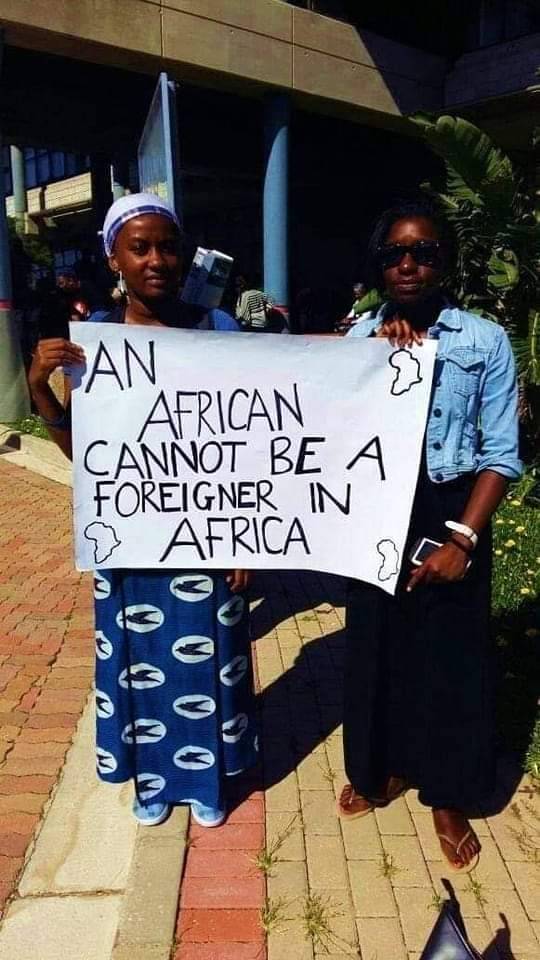
View On WordPress
#Addis Ababa#Africa Must Unite#African Continental Free Trade Area#African Union#Durban#Free movement#Lusaka#Organization of African Unity#Sirte
6 notes
·
View notes
Text
many people have said it but bears repeating again:
Palestinian liberation calls for a 1 state solution under which all people are equal under both under the law and in practice.
In order to have peace the genocide, apartheid, and occupation must end. Settler colonialism must end. Second class citizenry must end. All Palestinians imprisoned must be released. Reparations must be made to Palestinians who have been affected by both current events and historical, from the Nakba in 1948 to today. Everyone who participated in the facilitation of the apartheid, and the violence of the apartheid and occupation required to maintain the oppressive regime, must be held accountable. Palestinians must be granted the right to return to their homes.
The idea that Palestinian liberation = carrying out a genocide on Israelis is nothing more than baseless, racist, orientalist fearmongering (and, to an extent, pure projection) that serves to justify the current genocidal regime and the apartheid having been maintained for decades. One people's freedom does not threaten another people. People are fearmongering over a hypothetical scenario (the same fearmongering used in South Africa; both during the reconstruction era following the abolition of slavery & also against abolitionists while slavery was still legal in the United States; in regards to the North American indigenous population; and so on) while an actual genocide is going on.
the only way to real actual peace, safety, and security is through the complete liberation of the Palestinian people, not the continued maintenance of the current regime or the apartheid that led to this current moment in time. apartheid is inherently violent; oppression is inherently violent. colonialism is inherently violent. if YOUR 'safety' is dependent on the oppression, displacement, and murder of OTHER PEOPLE then your conditions are not and will never be safe.
#palestine#geopol#seeing people on twitter being like 'this is so complex' and 'but what will happen' like PEOPLE HAVE SAID WHAT!#📁.zip
30K notes
·
View notes
Text
As a heads up, the Western propaganda machine is going to be much worse. Now that there's confirmation that South Africa are preparing to take Britain and the United States to the International Court of Justice (ICJ) for complicity in the State of Israel’s war crimes and genocide on Gaza- we think that it's important to note that it's almost like clockwork that the propaganda machine will skyrocket with new anti-Palestinian resistance defamation and unfounded allegations levied to further hostility within our already divided communities.
Read more on South Africa's proposal here:
News sourced from Anadolu Ajansı.
It’s a no-brainer that we’ll see a sharp rise in pro-Israel propaganda, and it’s highly likely that there’ll be a crackdown on pro-Palestinian and anti-Zionist rallying. You see, the Capitalist hegemony is almost ridiculously predictable once you figure out how it functions and operates; the historical cycle of committing atrocities and subsequently excusing themselves with absurd lies of brainwashing propaganda. The United States and United Kingdom will certainly not take kindly to South Africa's intention to charge them in this international lawsuit- thus they will need a retaliation that gains more favour for them from the general public.
Expect more confounded accusations of antisemitism and Jew-hatred imposed on celebrities, organisations, journalists, even nations. Expect more fascist laws passed to silence Palestinian resistance support, and more Islamophobic fear-mongering.
Propaganda is not always easy to spot and deconstruct, so be sure to stay vigilant and think critically in context of current events. However the Imperial core are growing weaker, with such incredible numbers, millions of people, showing support to Palestine internationally- we are no longer easily fooled by their usual tactics. In the putrid face of propaganda, the Palestinian resistance persists.
#free palestine#palestine#anti capitalism#anti imperialism#jumblr#jewish thought#tikkun olam#jewish antizionism#jews for palestine#propaganda machine
17K notes
·
View notes
Text
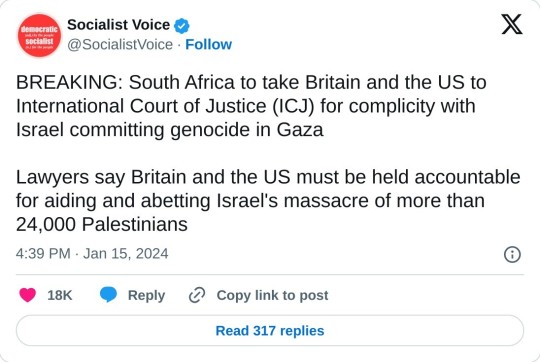
When he told the people around him about filing a lawsuit, Rensburg said he received a lot of support. "Many lawyers decided to join us in the lawsuit. Many of those who have joined are Muslims, but I am not. They feel obligated to assist this cause, but I believe that what is happening is incorrect."
What happened in Iraq is an example of this, he said, noting that no one held the US accountable for the crimes it committed in the Middle Eastern country as the issue was not given the necessary importance.But now people believe what is happening in Palestine is an ideal scenario for the legal process to be carried out, the South African lawyer said, adding that "the US is busy spending more money and more resources to (allow Israel) commit the crime.”
“No one says stop, enough is enough," he remarked.
Rensburg said the genocide case filed by South Africa against Israel at the ICJ will serve as a guide for their case against the US and UK, and that they will begin the process based on the outcome of the case and the steps to be taken by the United Nations.
#yemen#jerusalem#tel aviv#current events#palestine#free palestine#gaza#free gaza#news on gaza#palestine news#news update#war news#war on gaza#south africa#icj hearing#icj#joe biden#rishi sunak#endisraelsgenocide#gaza genocide
14K notes
·
View notes
Text
Just Roll With Palestine: Keep the Strike Rolling
Hello, #JustRollWithPalestine has come back to Keep the Strike Rolling from January 26th to February 10th. Participation in any capacity will be rewarded, and there are ways for you to help even if you can't donate!
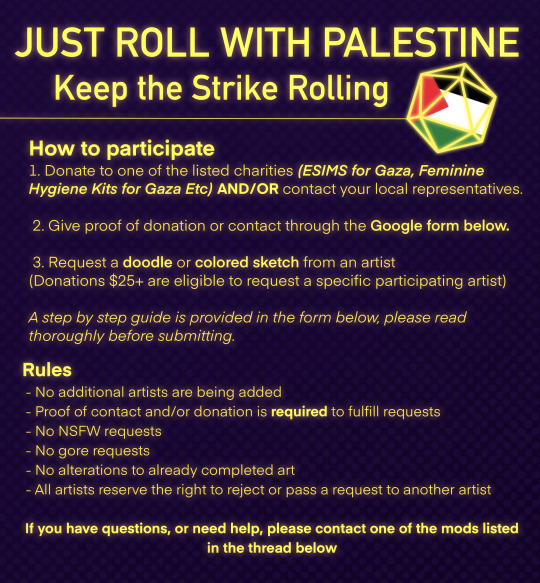
Link to Google form: HERE
If you have any questions feel free to dm me here or on twitter, as well as the rest of the social media mods on twitter:
@organbean
@ne0neclipse
@tinytiefling_
@RenRooked
Additional mods working on this project:
@grassfur
@neptunelogs
@reed_you_guess
All necessary links and information are in the Google form, BUT for easier access to links and/or for those who just want to donate links to resources to help out, click keep reading!
To Donate:
Feminine Hygiene Kits for Gaza With the Asad Sisters
Care for Gaza Paypal
Just Roll With Palestine Tiltify (PCRF)
World Central Kitchen
ESIMS for Gaza- Instructions provided NOMAD (iPhone only): https://www.getnomad.app/en/middle-east-eSIM
Tutorial on twitter for NOMAD: https://x.com/icarus19897/status/1741297413321637972?s=20
SIMLY (iPhone and Google Play): https://www.simly.io/regional-esim
Tutorial on twitter for SIMLY: https://x.com/CharSequence/status/1719283248721702946?s=20
To personally contact your representatives:
Use this template builder to create your own message to your government representative:
To send a prewritten message:
(US):
(AU):
https://apan.org.au/support-south-africas-icj-case/
(CA):
(UK):
https://www.map.org.uk/campaigns/it-is-becoming-impossible-to-sustain-human-life-in-gaza-demand-a-ceasefirenow
#just roll with palestine#jrwp#ceasfire now#free palestine#from the river to the sea palestine will be free#jrwi#jrwishow
1K notes
·
View notes
Text
The International Court of Justice has issued a ground-breaking decision in South Africa’s genocide case against Israel, ordering Israel to comply with six provisional measures to safeguard the right of Palestinians in Gaza to be protected from genocidal violence.
The court’s order is binding on Israel and formalizes the international legal obligations of other countries that are parties to the UN Genocide Convention.
Properly understood, the order should dramatically alter both the foreign and domestic policy decisions of Israel’s allies, including Canada and the United States.
Israel and its allies cannot dismiss or minimize the importance of this decision. In granting interim relief, the court concluded that South Africa’s allegations of genocide are, at a minimum, legally and factually plausible.
Crucially, the court expressly concluded, by an overwhelming majority, that Palestinians in Gaza face a “real and imminent risk” of genocide. This puts other countries on notice that they have an international legal duty to take steps to prevent genocide in Gaza in accordance with the court’s order.
As the court stated in a 2007 ruling when Bosnia accused Serbia of genocide, countries that are parties to the Genocide Convention have an obligation to prevent and a corresponding duty to act “the instant that the state learns of, or should normally have learned of, the existence of a serious risk that genocide will be committed.”
Both Canada and the U.S. have construed the court’s decision narrowly, suggesting it merely reiterates Israel’s right of self-defence and obligation to comply with international humanitarian law.
This is a legally indefensible reading of the court’s ruling.[...]
Statements of political support by the U.S. and Canada that Israel is abiding by the laws of war — contrary to the facts — cannot shield Israel or its allies from their legal obligations under the Genocide Convention. Those obligations — including to prevent genocide — are created via treaty and are interpreted by courts, the highest of which is the International Court of Justice.
The obligation to prevent genocide, combined with the court’s finding of a serious risk of genocide, means that all parties to the Genocide Convention must refrain from taking steps that would actively frustrate the effective implementation of the court’s order.[...]
But just hours after the court’s ruling, the U.S. announced it was suspending funding for the United Nations Relief and Works Agency for Palestine Refugees in the Near East.[...]
The U.S. is the biggest financial contributor to UNRWA. Several other key donor countries, including Canada, quickly followed suit.
UNRWA is the largest aid provider in Gaza and a trusted lifeline to civilians in the territory. Even if the allegations are true, defunding the entire organization openly defies the court’s order and amounts to collective punishment of the civilian population in Gaza
Disturbingly, moves to defund UNRWA appear to help implement Israeli government plans to undermine the organization’s capacity to deliver aid to Palestinians in Gaza. Earlier this month, policy experts told the Knesset that UNRWA “must be dismantled and thrown in the dustbin of history” and that “no country that is a friend of Israel should provide them any money.”
The ICJ found that “the catastrophic humanitarian situation in the Gaza Strip is at serious risk of deteriorating further,” plausibly inflicting conditions of life calculated to bring about the physical destruction of Palestinians in Gaza.
Accordingly, any country’s action knowingly contributing to further deterioration would violate the obligation to prevent genocide and could amount to complicity in genocide.[...]
In 2022, Canada sent more than $21 million worth of military exports to Israel. The Export and Import Permits Act forbids arms permits to be issued if there’s a “substantial risk” that the goods could be used to commit or facilitate serious violations of international humanitarian or human rights law.
Because the ICJ found a serious risk of genocide in Gaza, continuing to export arms to Israel would be illegal. It would also be flagrantly inconsistent with Canada’s obligation to prevent genocide, and could expose Canada and Canadian officials to liability for participation in genocide.
We must reject the politics of deliberate indifference to atrocity currently on display in the Canadian government’s reactions to the ICJ ruling.
28 Jan 24
913 notes
·
View notes
Text
We Are No Strangers to Human Suffering, but We’ve Seen Nothing Like the Siege of Gaza
Dec. 11, 2023 | Source: New York Times Op-ed
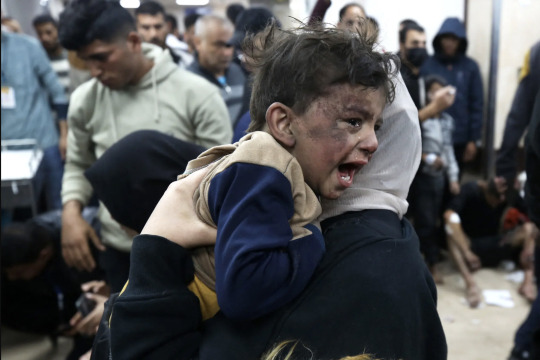
By Michelle Nunn (CARE USA), Tjada D’Oyen McKenna (Mercy Corps), Jan Egeland (Norwegian Refugee Council), Abby Maxman (Oxfam America), Jeremy Konyndyk (Refugees International), and Janti Soeripto (Save the Children U.S.)
We are no strangers to human suffering — to conflict, to natural disasters, to some of the world’s largest and gravest catastrophes. We were there when fighting erupted in Khartoum, Sudan. As bombs rained down on Ukraine. When earthquakes leveled southern Turkey and northern Syria. As the Horn of Africa faced its worst drought in years. The list goes on.
But as the leaders of some of the world’s largest global humanitarian organizations, we have seen nothing like the siege of Gaza. In the more than two months since the horrifying attack on Israel that killed more than 1,200 people and resulted in some 240 abductions, about 18,000 Gazans — including more than 7,500 children — have been killed, according to the Gazan health ministry. More children have been reported killed in this conflict than in all major global conflicts combined last year.
The atrocities committed by Hamas on Oct. 7 were unconscionable and depraved, and the taking and holding of hostages is abhorrent. The calls for their release are urgent and justified. But the right to self-defense does not and cannot require unleashing this humanitarian nightmare on millions of civilians. It is not a path to accountability, healing or peace. In no other war we can think of in this century have civilians been so trapped, without any avenue or option to escape to save themselves and their children.
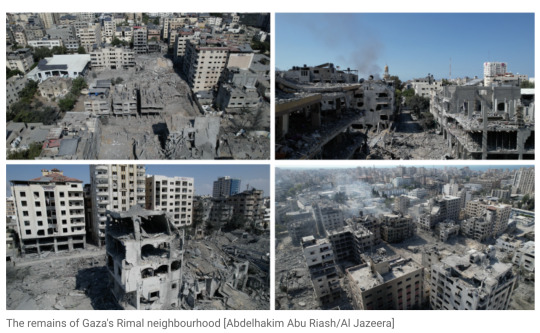
Most of our organizations have been operating in Gaza for decades. But we can do nothing remotely adequate to address the level of suffering there without an immediate and complete cease-fire and an end to the siege. The aerial bombardments have rendered our jobs impossible. The withholding of water, fuel, food and other basic goods has created an enormous scale of need that aid alone cannot offset.
Global leaders — and especially the United States government — must understand that we cannot save lives under these conditions. A significant change in approach from the U.S. government is needed today to pull Gaza back from this abyss.
For a start, the Biden administration must stop its diplomatic interference at the United Nations, blocking calls for a cease-fire.
Since the pause in fighting ended, we are again witnessing an exceptionally high level of bombardment, and at increasing ferocity. The few areas left in Gaza that are untouched by bombardment are shrinking by the hour, forcing more and more civilians to seek safety that does not exist. Over 80 percent of 2.3 million Gazans are now displaced. The newest Israeli offensive is now forcing them to cluster on a tiny sliver of land.
The bombardment is not the only thing brutally cutting lives short. The siege of — and blockades surrounding — Gaza have led to a critical food scarcity, cutoffs of medical supplies and electricity, and a lack of clean water. There is barely any medical care to be found in the enclave and few medications. Surgeons are working by the light of their mobile phones, without anesthetics. They are using dishcloths as bandages. The risk of waves of waterborne and infectious disease will only grow in the increasingly overcrowded living conditions of the displaced.
One of our colleagues in Gaza recently described their struggle to feed an orphaned infant who had been rescued from the rubble of an airstrike. The baby had not eaten for days after her mother’s death. Colleagues could only scrounge up powdered milk — not formula, not breast milk, and not a nutritionally suitable infant food — to help stave off her starvation.
Before the war, hundreds of truckloads of aid were needed each day to support Gazans’ daily existence. Only a trickle of that required aid has made it into Gaza in the two months since the war began. But even if more were allowed in, our work in Gaza is dependent on ensuring our teams can move safely to set up warehouses, shelters, health clinics, schools, and water, sanitation and hygiene infrastructure.
Today our staff members are not safe. They tell us they’re making the daily choice of staying with their families in one place so that they can die together or go out to seek water and food.
Among leaders in Washington, there is constant talk about preparing for the “day after.” But if this relentless bombardment and siege continue, there will be no “day after” for Gaza. It will be too late. Hundreds of thousands of lives hang in the balance today.
So far, American diplomacy in this war has not delivered on the goals President Biden has conveyed: protection of innocent civilians, adherence to humanitarian law, more aid delivery. To stop Gaza’s apocalyptic free fall, the Biden administration must take tangible measures, as it does in other conflicts, to up the ante with all parties to the conflict and bordering countries.
Secretary of State Antony Blinken once said of the war in Ukraine that the targeting of heat, water and electricity was a “brutalization of Ukraine’s people” and “barbaric.” The Biden administration should acknowledge that the same holds true in Gaza. While it has announced measures to deter violence against Palestinian civilians in the West Bank, Mr. Blinken and his colleagues should apply similar pressure to stop violence against civilians in Gaza, too.
The harrowing events unfolding before us are shaping a global narrative that, if unchanged, will reveal a legacy of indifference in the face of unspeakable suffering, bias in the application of the laws of conflict and impunity for actors that violate international humanitarian law.
The U.S. government must act now — and fight for humanity.
Ms. Nunn is the president and chief executive of CARE USA. Ms. McKenna is the chief executive of Mercy Corps. Mr. Egeland is the secretary general of the Norwegian Refugee Council. Ms. Maxman is the president and chief executive of Oxfam America. Mr. Konyndyk is the president of Refugees International. Ms. Soeripto is the president and chief executive of Save the Children U.S.
#gaza#gaza strip#world news#news#middle east#israel#palestine#news on gaza#ceasefire#israel palestine conflict#human rights#humanitarian crisis#international law#PLEASE TAKE A MOMENT TO READ#DONT LOOK AWAY#current events#social justice#ceasefire now#end occupation#palestinians
865 notes
·
View notes
Text
Game of Thrones stars and other actors read South Africa's case file charging Israel with genocide at the International Court of Justice.
Transcript:
It was already known that repeated exposure to conflict and violence, including witnessing and experiencing housing demolition, combined with Israel'siege of Gaza since 2007, is associated with high levels of psychological distress amongst Palestinians.
Indeed, the United Nations Security Council Resolution 2712 expressed its deep concern that the disruption of access to education has a dramatic impact on children and that conflict has a lifelong effect on their physical and mental health.
This disruption and its dramatic impact on children must be considered in particular and in the context of the number of Palestinian students and educators who have been killed, 4,037 and 209 respectively, and wounded, estimated at 7,259 and the number of Palestinian schools having been damaged or destroyed 352 or 74% of the schools in the whole of Gaza.
Medical professionals assess that the health effects on all Palestinian children, women, men, older people, people with disabilities and people marginalized identities are immense.
An emergency coordinator for Médecins Sans Frontières interviewed on her return from five weeks in Gaza, describes: It's even worse in reality than it looks. The amount of suffering is just something incomparable. It's really unbearable. I'm speechless when I try and think of the future of these children. Generations of children who will be handicapped, who will be traumatized.
The very children in our mental health program are telling us that they would rather die than continue living in Gaza now.
The extreme levels of bombardment and lack of any safe areas are also causing severe mental trauma in the Palestinian population in Gaza.
Even before the latest onslaught, Palestinians in Gaza suffered severe trauma from prior attacks. 80% of Palestinian children experienced higher levels of emotional distress, demonstrating bed wetting, 79% and reactive mutism, 59% and engaging in self harm, 59% and suicidal thoughts, 55%.
Eleven weeks of relentless bombardment, displacement and loss will necessarily have led to a further increase in those figures, particularly for the estimated tens of thousands of Palestinian children who have lost at least one parent and those who are the sole surviving members of their families.
For the families who remain intact or partially intact, quote, “It's about doing everything you can so your child doesn't realize that you've lost control.”
There are reports of Israeli forces using white phosphorus in densely populated areas in Gaza.
As the World Health Organization describes, even small amounts of white phosphorus can cause deep and severe burns, penetrating even through bone and capable of reigniting after initial treatment.
There are no functioning hospitals in the north of Gaza in particular, such that injured persons are reduced to waiting to die, unable to seek surgery or medical treatment beyond first aid, dying slow, agonizing deaths from their injuries or from resultant infections.
Large numbers of Palestinian civilians, including children, have reportedly been arrested, blindfolded, forced to undress and remain outside in cold weather before being forced onto trucks and taken to unknown locations.
Medics and first responders in particular have been repeatedly detained by Israeli forces, with many being detained in communicado at unknown locations.
Videos published by Israeli media on Christmas Day appeared to show hundreds of Palestinians rounded up inside al-Yarmouk football stadium in Gaza City, including children, older people and persons with disabilities, being forced to strip to their underwear in degrading conditions. United Nations Office for the Coordination of Humanitarian affairs, or UN OCHA, reports video footage showing bruises and burns on the bodies of detainees.
Images of mutilated and burned corpses, alongside videos of armed attacks by Israeli soldiers are reportedly circulated in Israel via a Telegram channel called, 72 Virgins Uncensored, billed as exclusive content from the Gaza Strip.
#politics#palestine#gaza#israel#south africa#war crimes#genocide#game of thrones#lena heady#icj#icj hearing#intenational court of justice#ceasefire now#ceasefire#never again#never again to anyone#collective punishment#bds#boycott divest sanction#israel is a terrorist state#israel is an apartheid state#ethnic cleansing#benjamin netanyahu is a war criminal#🇵🇸#🇿🇦
727 notes
·
View notes
Text
Just try looking for a positive story on China any day of the week in any of the leading global media outlets. Apart from reports in January about the Lunar New Year, there will hardly be any, and these too are likely to have a negative spin. It would appear there is a confidential memo circulating within Western media groups that guides reporters and editors to ensure there cannot be any positive news arising from a country with 1.3 billion people.
Typically, the negative stories adhere to three core ideas, which inform the unspoken guidelines within these press rooms when it comes to reporting on China.
First is the belief that China is a threat to the world and that this belief must be relentlessly reinforced at every available opportunity. How and why China is a threat is never explored; such is the deep-rooted and almost religious nature of the belief. Sound arguments do not matter. The basic tenets of good journalism are ignored when it comes to a China story. There is no need to explain or give evidence of why China is a global threat.
Left ignored is the plentiful evidence that shows China is not a global threat – even if one can point to mistakes and overreach in certain areas. China has not invaded any country in decades, or imposed sanctions that have devasted the lives of millions in poor countries, unlike the West, led by the United States.
Second is that China must be linked to every possible global event that affects the West. This provides an opportunity for the West to bash China while simultaneously burnishing its own credentials as the supposed arbiters of what is right and wrong in international relations. From the pandemic to the Russia-Ukraine war to carbon emissions; from rising sea levels to the scramble for rare earths; from the building of infrastructure in Africa to the production of vaccines – there must be an angle to demonize the country and instill fear in Western nations (and beyond).
Indeed, media outlets are reverting to the “yellow peril” of the late 1800s. There is no subtle and nuanced approach to instilling fear like this. It is full-on and very often blatantly racist – but it is now acceptable for one to be racist about the Chinese in Western media, despite the fact that Black-White relations are very carefully described.
The third part of this phenomenon, which is surprisingly not challenged by liberal readers of mainstream media, is the sentiment that everything must be done – even illegal and unfair methods – to arrest the rise of China. Never mind the rights of hundreds of millions of Chinese to have a better life after a century of poverty and deprivation.
#written by an indian-malaysian no less#i'm surprised as usually the people (regardless of ethnicity) who write for such publications#and who write this well and soundly#do so for NATO-friendly purposes. hopefully the tide will shift further soon
704 notes
·
View notes
Text
PAN-AFRICAN DIARIES: KWAME NKRUMAH

View On WordPress
#Africa Must Unite#African Union#African Unity#Kwame Nkrumah#Pan-African Spirit#Pan-Africanism#Patrice Lumumba
6 notes
·
View notes
Text
The United Auto Workers, one of the US’s largest labor unions, has come out in support of a ceasefire in Israel and Palestine as a temporary ceasefire ended on Friday with Israel resuming military operations in Gaza.
The UAW is now the largest union to have called for a ceasefire. It represents 400,000 workers in the US and more than 580,000 retired workers.
“I’m proud today to announce that the UAW international has joined the call for a ceasefire in Israel and Palestine,” Brandon Mancilla, UAW director, said at a press conference on Friday outside the White House where protesters have been on hunger strike.
“From opposing fascism in WWII to mobilizing against apartheid South Africa and the Contra war, the UAW has consistently stood for justice across the globe. A labor movement that fights for social and economic justice for all workers must always stand against war and for peace.”
“Our international executive board will also be forming a divestment and just transition working group to study the history of Israel and Palestine, our union’s economic ties to the conflict, and explore how we can have a just transition for US workers from war to peace.”
500 notes
·
View notes
Text
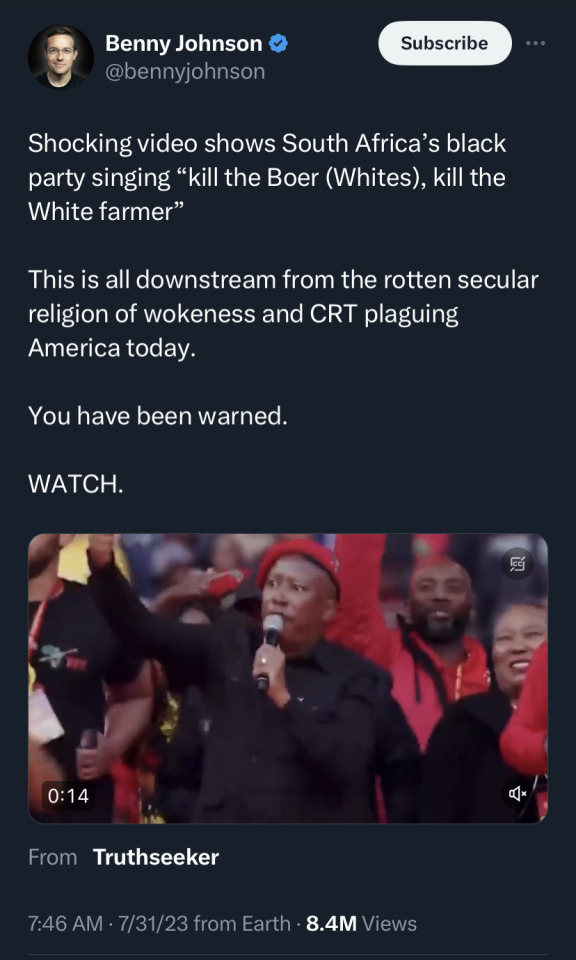
Couple things here:
1. Calling the EFF “South Africa’s black party” as if almost every party in South Africa isn’t majority Black in membership
2. Having such a myopic view of politics and history that anti-white sentiment among Black South Africans must be a knock-on effect of “wokeness” in the United States
844 notes
·
View notes
Text
essential reading.
Opinion - There is a Jewish Hope for Palestinian Liberation. It Must Survive. - by Peter Beinart
And perhaps one day, when it finally becomes hideously clear that Hamas cannot free Palestinians by murdering children and Israel cannot subdue Gaza, even by razing it to the ground, those communities may become the germ of a mass movement for freedom that astonishes the world, as Black and white South Africans did decades ago. I’m confident I won’t live to see it. No gambler would stake a bet on it happening at all. But what’s the alternative, for those of us whose lives and histories are bound up with that small, ghastly, sacred place?
"In 1988, bombs exploded at restaurants, sporting events and arcades in South Africa. In response, the African National Congress, then in its 77th year of a struggle to overthrow white domination, did something remarkable: It accepted responsibility and pledged to prevent its fighters from conducting such operations in the future. Its logic was straightforward: Targeting civilians is wrong. “Our morality as revolutionaries,” the A.N.C. declared, “dictates that we respect the values underpinning the humane conduct of war.”
Historically, geographically and morally, the A.N.C. of 1988 is a universe away from the Hamas of 2023, so remote that its behavior may seem irrelevant to the horror that Hamas unleashed last weekend in southern Israel. But South Africa offers a counter-history, a glimpse into how ethical resistance works and how it can succeed. It offers not an instruction manual, but a place — in this season of agony and rage — to look for hope.
There was nothing inevitable about the A.N.C.’s policy, which, as Jeff Goodwin, a New York University sociologist, has documented, helped ensure that there was “so little terrorism in the anti-apartheid struggle.” So why didn’t the A.N.C. carry out the kind of gruesome massacres for which Hamas has become notorious? There’s no simple answer. But two factors are clear. First, the A.N.C.’s strategy for fighting apartheid was intimately linked to its vision of what should follow apartheid. It refused to terrify and traumatize white South Africans because it wasn’t trying to force them out. It was trying to win them over to a vision of a multiracial democracy.
ADVERTISEMENT
Second, the A.N.C. found it easier to maintain moral discipline — which required it to focus on popular, nonviolent resistance and use force only against military installations and industrial sites — because its strategy was showing signs of success. By 1988, when the A.N.C. expressed regret for killing civilians, more than 150 American universities had at least partially divested from companies doing business in South Africa, and the United States Congress had imposed sanctions on the apartheid regime. The result was a virtuous cycle: Ethical resistance elicited international support, and international support made ethical resistance easier to sustain.
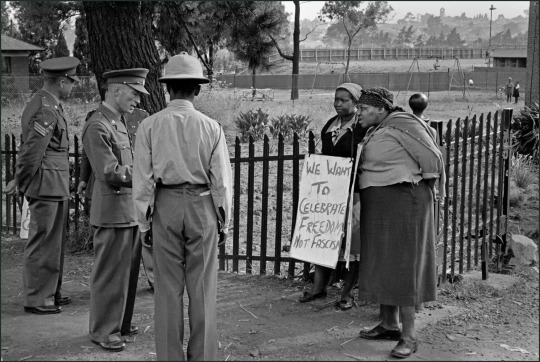
In Israel today, the dynamic is almost exactly the opposite. Hamas, whose authoritarian, theocratic ideology could not be farther from the A.N.C.’s, has committed an unspeakable horror that may damage the Palestinian cause for decades to come. Yet when Palestinians resist their oppression in ethical ways — by calling for boycotts, sanctions and the application of international law — the United States and its allies work to ensure that those efforts fail, which convinces many Palestinians that ethical resistance doesn’t work, which empowers Hamas.
The savagery Hamas committed on Oct. 7 has made reversing this monstrous cycle much harder. It could take a generation. It will require a shared commitment to ending Palestinian oppression in ways that respect the infinite value of every human life. It will require Palestinians to forcefully oppose attacks on Jewish civilians, and Jews to support Palestinians when they resist oppression in humane ways — even though Palestinians and Jews who take such steps will risk making themselves pariahs among their own people. It will require new forms of political community, in Israel-Palestine and around the world, built around a democratic vision powerful enough to transcend tribal divides. The effort may fail. It has failed before. The alternative is to descend, flags waving, into hell.
As Jewish Israelis bury their dead and recite psalms for their captured, few want to hear at this moment that millions of Palestinians lack basic human rights. Neither do many Jews abroad. I understand; this attack has awakened the deepest traumas of our badly scarred people. But the truth remains: The denial of Palestinian freedom sits at the heart of this conflict, which began long before Hamas’s creation in the late 1980s.
Most of Gaza’s residents aren’t from Gaza. They’re the descendants of refugees who were expelled, or fled in fear, during Israel’s war of independence in 1948. They live in what Human Rights Watch has called an “open-air prison,” penned in by an Israeli state that — with help from Egypt — rations everything that goes in and out, from tomatoes to the travel documents children need to get lifesaving medical care. From this overcrowded cage, which the United Nations in 2017 declared “unlivable” for many residents in part because it lacks electricity and clean water, many Palestinians in Gaza can see the land that their parents and grandparents called home, though most may never step foot in it.
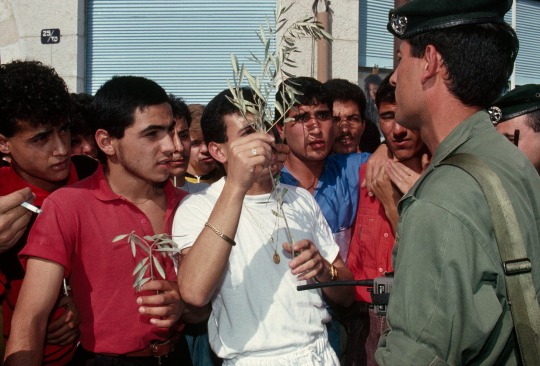
Palestinians in the West Bank are only slightly better off. For more than half a century, they have lived without due process, free movement, citizenship or the ability to vote for the government that controls their lives. Defenseless against an Israeli government that includes ministers openly committed to ethnic cleansing, many are being driven from their homes in what Palestinians compare to the mass expulsions of 1948. Americans and Israeli Jews have the luxury of ignoring these harsh realities. Palestinians do not. Indeed, the commander of Hamas’s military wing cited attacks on Palestinians in the West Bank in justifying its barbarism last weekend.
Just as Black South Africans resisted apartheid, Palestinians resist a system that has earned the same designation from the world’s leading human rights organizations and Israel’s own. After last weekend, some critics may claim Palestinians are incapable of resisting in ethical ways. But that’s not true. In 1936, during the British mandate, Palestinians began what some consider the longest anticolonial general strike in history. In 1976, on what became known as Land Day, thousands of Palestinian citizens demonstrated against the Israeli government’s seizure of Palestinian property in Israel’s north. The first intifada against Israel’s occupation of the West Bank and the Gaza Strip, which lasted from roughly 1987 to 1993, consisted primarily of nonviolent boycotts of Israeli goods and a refusal to pay Israeli taxes. While some Palestinians threw stones and Molotov cocktails, armed attacks were rare, even in the face of an Israeli crackdown that took more than 1,000 Palestinian lives. In 2005, 173 Palestinian civil society organizations asked “people of conscience all over the world to impose broad boycotts and implement divestment initiatives against Israel similar to those applied to South Africa in the apartheid era.”
But in the United States, Palestinians received little credit for trying to follow Black South Africans’ largely nonviolent path. Instead, the Boycott, Divestment and Sanctions movement’s call for full equality, including the right of Palestinian refugees to return home, was widely deemed antisemitic because it conflicts with the idea of a state that favors Jews.
It is true that these nonviolent efforts sit uncomfortably alongside an ugly history of civilian massacres: the murder of 67 Jews in Hebron in 1929 by local Palestinians after Haj Amin al-Husseini, the grand mufti of Jerusalem, claimed Jews were about to seize Al Aqsa Mosque; the airplane hijackings of the late 1960s and 1970s carried out primarily by the leftist Popular Front for the Liberation of Palestine and Yasir Arafat’s nationalist Fatah faction; the 1972 assassination of Israeli athletes in Munich carried out by the Palestinian organization Black September; and the suicide bombings of the 1990s and 2000s conducted by Hamas, Palestinian Islamic Jihad and Fatah’s Aqsa Martyrs Brigades, whose victims included a friend of mine in rabbinical school who I dreamed might one day officiate my wedding.
And yet it is essential to remember that some Palestinians courageously condemned this inhuman violence. In 1979, Edward Said, the famed literary critic, declared himself “horrified at the hijacking of planes, the suicidal missions, the assassinations, the bombing of schools and hotels.” Rashid Khalidi, a Palestinian American historian, called the suicide bombings of the second intifada “a war crime.” After Hamas’s attack last weekend, a member of the Israeli parliament, Ayman Odeh, among the most prominent leaders of Israel’s Palestinian citizens, declared, “It is absolutely forbidden to accept any attacks on the innocent.”Tragically, this vision of ethical resistance is being repudiated by some pro-Palestinian activists in the United States. In a statement last week, National Students for Justice in Palestine, which represents more than 250 Palestinian solidarity groups in North America, called Hamas’s attack “a historic win for the Palestinian resistance” that proves that “total return and liberation to Palestine is near” and added, “from Rhodesia to South Africa to Algeria, no settler colony can hold out forever.” One of its posters featured a paraglider that some Hamas fighters used to enter Israel.
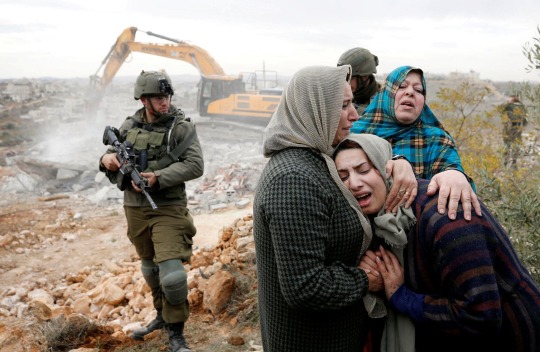
The reference to Algeria reveals the delusion underlying this celebration of abduction and murder. After eight years of hideous war, Algeria’s settlers returned to France. But there will be no Algerian solution in Israel-Palestine. Israel is too militarily powerful to be conquered. More fundamentally, Israeli Jews have no home country to which to return. They are already home.
Mr. Said understood this. “The Israeli Jew is there in the Middle East,” he advised Palestinians in 1974, “and we cannot, I might even say that we must not, pretend that he will not be there tomorrow, after the struggle is over.” The Jewish “attachment to the land,” he added, “is something we must face.” Because Mr. Said saw Israeli Jews as something other than mere colonizers, he understood the futility — as well as the immorality — of trying to terrorize them into flight.
The failure of Hamas and its American defenders to recognize that will make it much harder for Jews and Palestinians to resist together in ethical ways. Before last Saturday, it was possible, with some imagination, to envision a joint Palestinian-Jewish struggle for the mutual liberation of both peoples. There were glimmers in the protest movement against Benjamin Netanyahu’s judicial overhaul, through which more and more Israeli Jews grasped a connection between the denial of rights to Palestinians and the assault on their own. And there were signs in the United States, where almost 40 percent of American Jews under the age of 40 told the Jewish Electoral Institute in 2021 that they considered Israel an apartheid state. More Jews in the United States, and even Israel, were beginning to see Palestinian liberation as a form of Jewish liberation as well.
That potential alliance has now been gravely damaged. There are many Jews willing to join Palestinians in a movement to end apartheid, even if doing so alienates us from our communities, and in some cases, our families. But we will not lock arms with people who cheer the kidnapping or murder of a Jewish child.
The struggle to persuade Palestinian activists to repudiate Hamas’s crimes, affirm a vision of mutual coexistence and continue the spirit of Mr. Said and the A.N.C. will be waged inside the Palestinian camp. The role of non-Palestinians is different: to help create the conditions that allow ethical resistance to succeed.
Palestinians are not fundamentally different from other people facing oppression: When moral resistance doesn’t work, they try something else. In 1972, the Northern Ireland Civil Rights Association, which was modeled on the civil rights movement in the United States, organized a march to oppose imprisonment without trial. Although some organizations, most notably the Provisional Irish Republican Army, had already embraced armed resistance, they grew stronger after British soldiers shot 26 unarmed civilians in what became known as Bloody Sunday. By the early 1980s, the Irish Republican Army had even detonated a bomb outside Harrods, the department store in London. As Kirssa Cline Ryckman, a political scientist, observed in a 2019 paper on why certain movements turn violent, a lack of progress in peaceful protest “can encourage the use of violence by convincing demonstrators that nonviolence will fail to achieve meaningful concessions.”
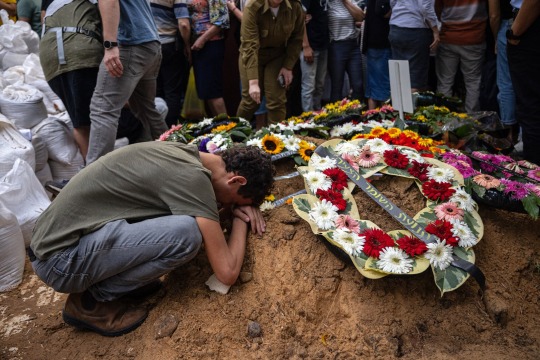
Israel, with America’s help, has done exactly that. It has repeatedly undermined Palestinians who sought to end Israel’s occupation through negotiations or nonviolent pressure. As part of the 1993 Oslo Accords, the Palestine Liberation Organization renounced violence and began working with Israel — albeit imperfectly — to prevent attacks on Israelis, something that revolutionary groups like the A.N.C. and the Irish Republican Army never did while their people remained under oppression. At first, as Khalil Shikaki, a Palestinian political scientist, has detailed, Palestinians supported cooperation with Israel because they thought it would deliver them a state. In early 1996, Palestinian support for the Oslo process reached 80 percent while support for violence against Israelis dropped to 20 percent.
The 1996 election of Benjamin Netanyahu, and the failure of Israel and its American patron to stop settlement growth, however, curdled Palestinian sentiment. Many Jewish Israelis believe that Ehud Barak, who succeeded Mr. Netanyahu, offered Palestinians a generous deal in 2000. Most Palestinians, however, saw Mr. Barak’s offer as falling far short of a fully sovereign state along the 1967 lines. And their disillusionment with a peace process that allowed Israel to entrench its hold over the territory on which they hoped to build their new country ushered in the violence of the second intifada. In Mr. Shikaki’s words, “The loss of confidence in the ability of the peace process to deliver a permanent agreement on acceptable terms had a dramatic impact on the level of Palestinian support for violence against Israelis.” As Palestinians abandoned hope, Hamas gained power.
After the brutal years of the second intifada, in which Hamas and other Palestinian armed groups repeatedly targeted Israeli civilians, President Mahmoud Abbas of the Palestinian Authority and Salam Fayyad, his prime minister from 2007 to 2013, worked to restore security cooperation and prevent anti-Israeli violence once again. Yet again, the strategy failed. The same Israeli leaders who applauded Mr. Fayyad undermined him in back rooms by funding the settlement growth that convinced Palestinians that security cooperation was bringing them only deepening occupation. Mr. Fayyad, in an interview with The Times’s Roger Cohen before he left office in 2013, admitted that because the “occupation regime is more entrenched,” Palestinians “question whether the P.A. can deliver. Meanwhile, Hamas gains recognition and is strengthened.”
As Palestinians lost faith that cooperation with Israel could end the occupation, many appealed to the world to hold Israel accountable for its violation of their rights. In response, both Democratic and Republican presidents have worked diligently to ensure that these nonviolent efforts fail. Since 1997, the United States has vetoed more than a dozen United Nations Security Council resolutions criticizing Israel for its actions in the West Bank and Gaza. This February, even as Israel’s far-right government was beginning a huge settlement expansion, the Biden administration reportedly wielded a veto threat to drastically dilute a Security Council resolution that would have condemned settlement growth.
Washington’s response to the International Criminal Court’s efforts to investigate potential Israeli war crimes is equally hostile. Despite lifting sanctions that the Trump administration imposed on I.C.C. officials investigating the United States’s conduct in Afghanistan, the Biden team remains adamantly opposed to any I.C.C. investigation into Israel’s actions.
The Boycott, Divestment and Sanctions movement, or B.D.S., which was founded in 2005 as a nonviolent alternative to the murderous second intifada and which speaks in the language of human rights and international law, has been similarly stymied, including by many of the same American politicians who celebrated the movement to boycott, divest from and sanction South Africa. Joe Biden, who is proud of his role in passing sanctions against South Africa, has condemned the B.D.S. movement, saying it “too often veers into antisemitism.” About 35 states — some of which once divested state funds from companies doing business in apartheid South Africa — have passed laws or issued executive orders punishing companies that boycott Israel. In many cases, those punishments apply even to businesses that boycott only Israeli settlements in the West Bank.
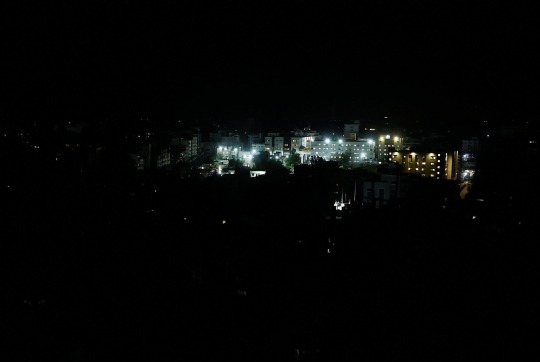
Palestinians have noticed. In the words of Dana El Kurd, a Palestinian American political scientist, “Palestinians have lost faith in the efficacy of nonviolent protest as well as the possible role of the international community.” Mohammed Deif, the commander of Hamas’s military wing, cited this disillusionment during last Saturday’s attack. “In light of the orgy of occupation and its denial of international laws and resolutions, and in light of American and Western support and international silence,” he declared, “we’ve decided to put an end to all this.”
Hamas — and no one else — bears the blame for its sadistic violence. But it can carry out such violence more easily, and with less backlash from ordinary Palestinians, because even many Palestinians who loathe the organization have lost hope that moral strategies can succeed. By treating Israel radically differently from how the United States treated South Africa in the 1980s, American politicians have made it harder for Palestinians to follow the A.N.C.’s ethical path. The Americans who claim to hate Hamas the most have empowered it again and again.
Israelis have just witnessed the greatest one-day loss of Jewish life since the Holocaust. For Palestinians, especially in Gaza, where Israel has now ordered more than one million people in the north to leave their homes, the days to come are likely to bring dislocation and death on a scale that should haunt the conscience of the world. Never in my lifetime have the prospects for justice and peace looked more remote. Yet the work of moral rebuilding must begin. In Israel-Palestine and around the world, pockets of Palestinians and Jews, aided by people of conscience of all backgrounds, must slowly construct networks of trust based on the simple principle that the lives of both Palestinians and Jews are precious and inextricably intertwined.
Israel desperately needs a genuinely Jewish and Palestinian political party, not because it can win power but because it can model a politics based on common liberal democratic values, not tribe. American Jews who rightly hate Hamas but know, in their bones, that Israel’s treatment of Palestinians is profoundly wrong must ask themselves a painful question: What nonviolent forms of Palestinian resistance to oppression will I support? More Palestinians and their supporters must express revulsion at the murder of innocent Israeli Jews and affirm that Palestinian liberation means living equally alongside them in safety and freedom.
From those reckonings, small, beloved communities can be born, and grow. And perhaps one day, when it finally becomes hideously clear that Hamas cannot free Palestinians by murdering children and Israel cannot subdue Gaza, even by razing it to the ground, those communities may become the germ of a mass movement for freedom that astonishes the world, as Black and white South Africans did decades ago. I’m confident I won’t live to see it. No gambler would stake a bet on it happening at all. But what’s the alternative, for those of us whose lives and histories are bound up with that small, ghastly, sacred place?
Like many others who care about the lives of both Palestinians and Jews, I have felt in recent days the greatest despair I have ever known. On Wednesday, a Palestinian friend sent me a note of consolation. She ended it with the words “only together.” Maybe that can be our motto.
#articles#definitely one of the best most extensive most personal most meaningful articles i've read this week#also addresses a LOT of uh. talking points recently
290 notes
·
View notes
Text
"On April 4, 1967, exactly one year before his assassination, the Rev. Dr. Martin Luther King Jr. stepped up to the lectern at the Riverside Church in Manhattan. [...] Many of King’s strongest allies urged him to remain silent about the war or at least to soft-pedal any criticism. They knew that if he told the whole truth about the unjust and disastrous war he would be falsely labeled a Communist, suffer retaliation and severe backlash, alienate supporters and threaten the fragile progress of the civil rights movement.
King rejected all the well-meaning advice and said, 'I come to this magnificent house of worship tonight because my conscience leaves me no other choice. […] A time comes when silence is betrayal' and added, 'that time has come for us in relation to Vietnam.'
It was a lonely, moral stance. And it cost him. But it set an example of what is required of us if we are to honor our deepest values in times of crisis, even when silence would better serve our personal interests or the communities and causes we hold most dear. It’s what I think about when I go over the excuses and rationalizations that have kept me largely silent on one of the great moral challenges of our time: the crisis in Israel-Palestine.
I have not been alone. Until very recently, the entire Congress has remained mostly silent on the human rights nightmare that has unfolded in the occupied territories. Our elected representatives, who operate in a political environment where Israel's political lobby holds well-documented power, have consistently minimized and deflected criticism of the State of Israel, even as it has grown more emboldened in its occupation of Palestinian territory and adopted some practices reminiscent of apartheid in South Africa and Jim Crow segregation in the United States. [...]
Reading King’s speech at Riverside more than 50 years later, I am left with little doubt that his teachings and message require us to speak out passionately against the human rights crisis in Israel-Palestine, despite the risks and despite the complexity of the issues. King argued, when speaking of Vietnam, that even 'when the issues at hand seem as perplexing as they often do in the case of this dreadful conflict,' we must not be mesmerized by uncertainty. 'We must speak with all the humility that is appropriate to our limited vision, but we must speak.'
And so, if we are to honor King’s message and not merely the man, we must condemn Israel’s actions: unrelenting violations of international law, continued occupation of the West Bank, East Jerusalem, and Gaza, home demolitions and land confiscations. We must cry out at the treatment of Palestinians at checkpoints, the routine searches of their homes and restrictions on their movements, and the severely limited access to decent housing, schools, food, hospitals and water that many of them face.
We must not tolerate Israel’s refusal even to discuss the right of Palestinian refugees to return to their homes, as prescribed by United Nations resolutions, and we ought to question the U.S. government funds that have supported multiple hostilities and thousands of civilian casualties in Gaza, as well as the $38 billion the U.S. government has pledged in military support to Israel.
And finally, we must, with as much courage and conviction as we can muster, speak out against the system of legal discrimination that exists inside Israel, a system complete with, according to Adalah, the Legal Center for Arab Minority Rights in Israel, more than 50 laws that discriminate against Palestinians — such as the new nation-state law that says explicitly that only Jewish Israelis have the right of self-determination in Israel, ignoring the rights of the Arab minority that makes up 21 percent of the population. [...]
Indeed, King’s views may have evolved alongside many other spiritually grounded thinkers, like Rabbi Brian Walt, who has spoken publicly about the reasons that he abandoned his faith in what he viewed as political Zionism. To him, he recently explained to me, liberal Zionism meant that he believed in the creation of a Jewish state that would be a desperately needed safe haven and cultural center for Jewish people around the world, "a state that would reflect as well as honor the highest ideals of the Jewish tradition.” He said he grew up in South Africa in a family that shared those views and identified as a liberal Zionist, until his experiences in the occupied territories forever changed him.
During more than 20 visits to the West Bank and Gaza, he saw horrific human rights abuses, including Palestinian homes being bulldozed while people cried — children's toys strewn over one demolished site — and saw Palestinian lands being confiscated to make way for new illegal settlements subsidized by the Israeli government. He was forced to reckon with the reality that these demolitions, settlements and acts of violent dispossession were not rogue moves, but fully supported and enabled by the Israeli military. For him, the turning point was witnessing legalized discrimination against Palestinians — including streets for Jews only — which, he said, was worse in some ways than what he had witnessed as a boy in South Africa."
— Michelle Alexander, from her essay Time to Break the Silence on Palestine, as featured in the New York Times in 2019
169 notes
·
View notes
Text


she's been supporting Palestine and decrying the apartheid, even and especially last October where she published a book on it
anyway, her statement as mentioned here
https://www.writingafrica.com/zukiswa-wanner-surrenders-germanys-goethe-medal-over-gaza-genocide/
My name is Zukiswa Wanner.
I am a writer, editor, publisher and curator who considers the African continent my home. In 2020, I became the first woman on my continent to receive the Goethe Medaille alongside Bolivian artist and Museum Director Elvira Espejo Ayca and writer Ian McEwan from the United Kingdom. While the Goethe Medal is conferred by the Goethe-Institut to ‘non-Germans who have performed outstanding service for international cultural relations’, it is important to note that the award is an official decoration of the Federal Republic of Germany.
I note and appreciate Goethe-Institut President Carola Lentz’ statement from an article of 14 January, 2024 in Der Spiegel where she says, and I quote, Longstanding partners in the international cultural world are losing trust in the liberality of Germany’s democracy and poses the question, should the Aaswartige Kultur und Bildungspolitik (AKPB) support only persons or groups who accommodate the political/moral agenda of the respective German government? She concludes otherwise and notes that organisations like Goethe-Institut must not become the extended arm of the government, particularly in difficult political times. In the same vein, Goethe-Institut Johannesburg, which is the regional headquarters for Sub Saharan Africa stated in a statement on 7th February, 2024 ‘As to the current war in Gaza – we are convinced that in view of the catastrophic situation, a new ceasefire is urgently needed. The rising number of civilian victims is unacceptable. It’s important to state this so I highlight that this is NOT a statement surrendering the medal because of the Goethe-Institut and its position even where we may not always agree. I mention the Goethe-Institut’ statement by way of explaining that my actions are not a critique of the cultural institution but rather of the government.
In May 2023, while attending Palestine Festival of Literature and months before October 7, I was in the Occupied Palestine Territories and travelled to Ramallah, Nabi Saleh, East Jerusalem, Hebron and Lydd. As a writer coming from a country with a history of apartheid, what I experienced shook me and resulted in my writing a long essay Vignettes of a People in an Apartheid State. One did not need to be from a country with a history of apartheid to see the daily injustices and indignities visited on Palestinians. Palestinians have separate roads, different number plates and are constantly under threat from strangers from the United States or white South Africans with apartheid nostalgia who come with guns and the protection of Israeli Defence Forces to settle into their homes. Indeed, unlike most literature festivals, PalFest takes the writers to multiple cities since Palestinians are unable to travel without permission from Israel, much like South Africa during apartheid, just more cruel.
This is why I am giving up the medal.
I understand Germany’s guilt for the Holocaust.
I do.
That guilt is appropriate and has enabled Germany to face its unconscionable past.
But it is this that makes its position on a current genocide in Palestine all the more shameful. As an aside and as an African, I wish the German government exhibited the same regret for their history in Namibia with the Herero-Nama genocide and for the genocide during the Maji Maji Rebellion in Tanzania. Equally important, I wish that the German government, in reflection and saying ‘never again’ would acknowledge that NEVER AGAIN should be for ANYBODY. Instead, what I see is Germany being on the wrong side of a genocide again (as per International Court of Justice provisional ruling to the case brought on by South Africa). Additionally, according to the United Nations High Commission for Refugees, Federal Republic of Germany and United States of America are the biggest arms exporters to Israel. With more than 30 thousand killed in Gaza, this should have been a mea culpa moment for the Federal Republic of Germany, instead, they seem to have doubled their support for a very problematic government.
Culturally, since October 7, 2023, I have seen Germany disengaging from artists for their position on the colonial state that is Israel even in light of Israel’s failures to adhere to the Oslo Accord (which was a super mediocre document for Palestinians). I am reading that of the cultural events cancelled by Germany, 30 percent are by Jewish artists who are anti-Zionist. This has failed to make sense to me that Jews can be considered antisemitic (obviously ignoring that Palestinians are a semitic people as those in support of the Israeli government seem intent on forgetting). More recently, during the Berlin Film Festival, Palestinian filmmaker Basel Adra and Israeli journalist Yuval Abraham won best documentary prize for their film No Other Lands which shows the eradication of Palestinian villages in the West Bank. The German Cultural Minister is reported to have stated her applause was only for the Israeli half of the filmmaking duo. South African history has a phrase for this. Petty Apartheid.
I thus find myself unable to stay silent or keep an official decoration from a government that is this callous to human suffering.
Ends.
106 notes
·
View notes
Text
updated! ID by @swosheep
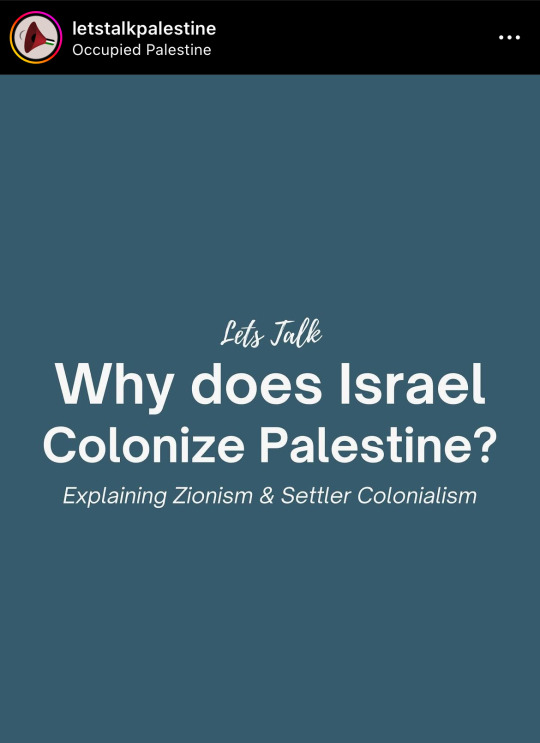
ID 1: all images are screenshots of an Instagram post by letstalkpalestine. The first is a title slide and reads "lets talk: Why does israel colonize Palestine? Explaining Zionism and Settler Colonialism".
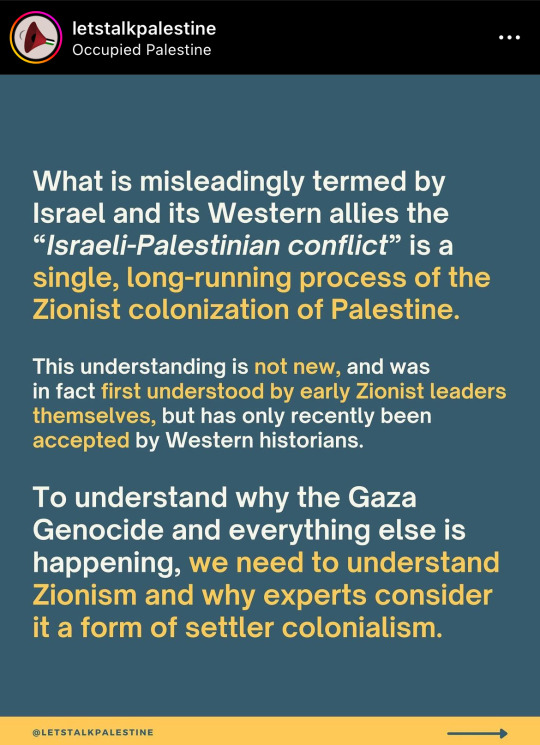
ID 2: the second image reads: "What is misleadingly termed by israel and its Western allies the "israeli-Palestinian conflict" is a single, long-running process of the Zionist colonization of Palestine. This understanding is not new, and was in fact first understood by early Zionist leaders themselves, but has only recently been accepted by Western historians. To understand why the Gaza Genocide and everything else is happening, we need to understand Zionism and why experts consider it a form of settler colonialism."
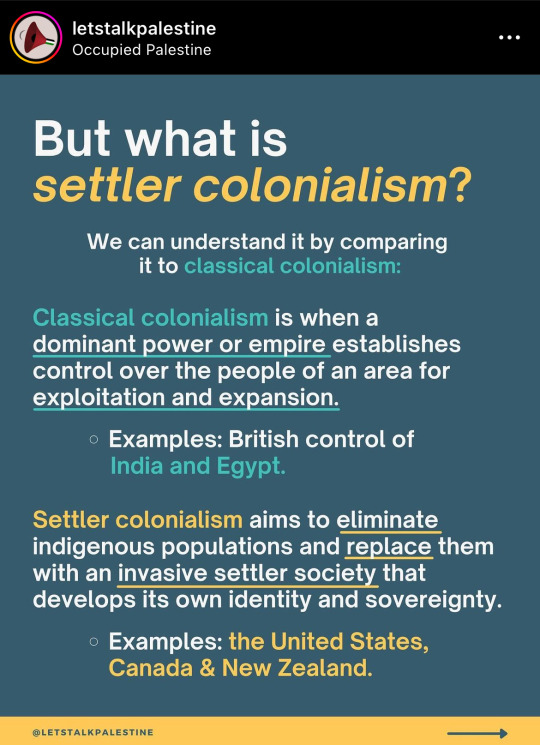
ID 3: the third image is titled: "But what is settler colonialism?" The body text reads: "We can understand it by comparing it to classical colonialism: Classical colonialism is when a dominant power or empire establishes control over the people of an area for exploitation and expansion. Examples: British control of India and Egypt. Settler colonialism aims to eliminate indigenous populations and replace them with an invasive settler society that develops its own identity and sovereignty. Examples: the United States, Canada & New Zealand."

ID 4: the fourth image is titled: "Settler colonialism is different from classical colonialism in 3 main ways:". There is a table comparing the ways. One column of the table is titled: "Settler colonialism" and the 3 points are: "1. Only temporarily & initially relies on the empire for support. 2. Motivated by desire to take over land. 3. Treats new land as a permanent national homeland for settlers." The second column of the table is titled: "Classical colonialism" and the 3 points are: "1. Always dependent on mother empire. 2. Motivated by exploiting natural resources. 3. Uses new land and its resources to serve the empire."
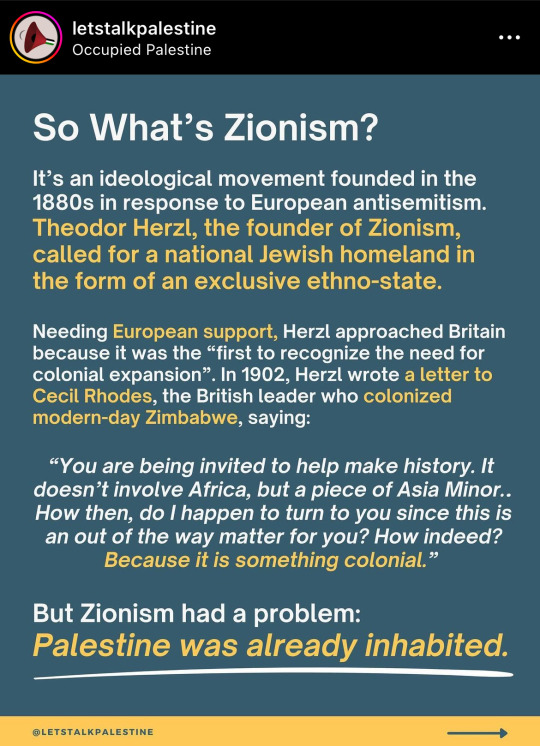
ID 5: the fifth image is titled: "So What's Zionism?". The body text reads: "It's an ideological movement founded in the 1880s in response to European antisemitism. Theodor Herzl, the founder of Zionism, called for a national Jewish homeland in the form of an exclusive ethno-state. Needing European support, Herzl approached Britain because it was the "first to recognize the need for colonial expansion". In 1902, Herzl wrote a letter to Cecil Rhodes, the British leader who colonized modern-day Zimbabwe, saying: 'You are being invited to help make history. It doesn't involve Africa, but a piece of Asia Minor.. How then, do I happen to turn to you since this is an out of the way matter for you? How indeed? Because it is something colonial.' But Zionism had a problem: Palestine was already inhabited."

ID 6: The sixth image is titled: "Zionism & Palestinians". The body text reads: "To establish a Jewish state (israel) in Palestine, Jewish people had to constitute the majority of the population. [quote] 'Only a state with at least 80% Jews is a viable and stable state.' [unquote] -[a quote from] Ben-Gurion, Israel's first Prime Minister. But Palestinians were the majority at the time. For Zionism to succeed, non-Jewish people had to be removed from Palestine and, in turn, Jewish settlers had to take their place. [quote] 'We must expel the Arabs and take their place' [unquote] -[a quote from] Ben-Gurion, Israel's first Prime Minister. This was implemented, and in 1947-1949, Zionist militias conducted a mass campaign of ethnic cleansing against Palestinians - the Nakba. 80% of Palestinians in the heartland were expelled to create Israel's Jewish majority."
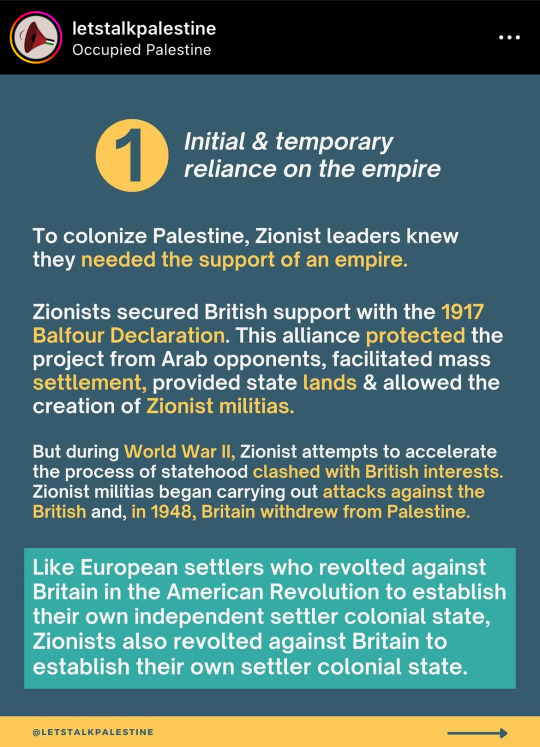
ID 7: The seventh image is titled: "1. Initial & temporary reliance on the empire". The body text reads: "To colonize Palestine, Zionist leaders knew they needed the support of an empire. Zionists secured British support with the 1917 Balfour Declaration. This alliance protected the project from Arab opponents, facilitated mass settlement, provided state lands & allowed the creation of Zionist militias. But during World War II, Zionist attempts to accelerate the process of statehood clashed with British interests. Zionist militias began carrying out attacks against the British and, in 1948, Britain withdrew from Palestine. Like European settlers who revolted against Britain in the American Revolution to establish their own independent settler colonial state, Zionists also revolted against Britain to establish their own settler colonial state."
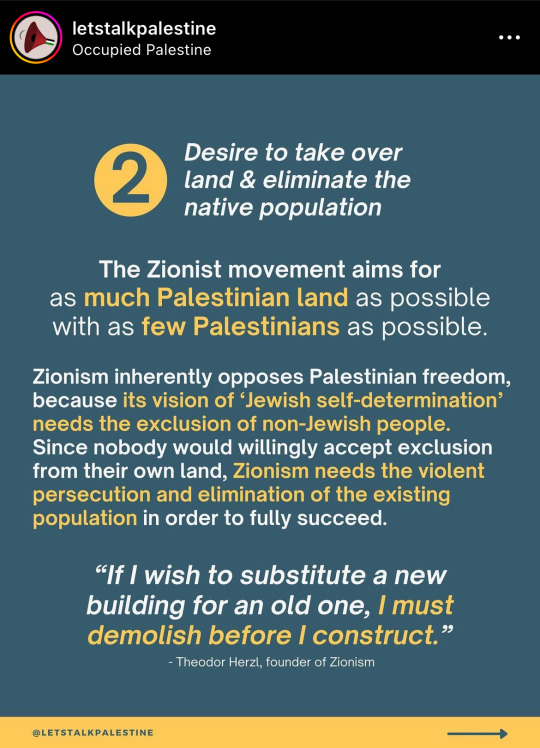
ID 8: The eighth image is titled: "2. Desire to take over land & eliminate the native population". The body text reads: "The Zionist movement aims for as much Palestinian land as possible with as few Palestinians as possible. Zionism inherently opposes Palestinian freedom, because its vision of 'Jewish self-determination' needs the exclusion of non-Jewish people. Since nobody would willingly accept exclusion from their own land, Zionism needs the violent persecution and elimination of the existing population in order to fully succeed. [quote] 'If I wish to substitute a new building for an old one, I must demolish before I construct.' [unquote] - [a quote from] Theodor Herzl, founder of Zionism".

ID 9: The ninth image is titled: "3. Permanent homeland". The body text reads: "Zionism's goal wasn't to establish a temporary base for an empire but a permanent homeland for a new settler population. To create a new society in a populated country, Zionists claimed Palestine by moral & divine right, an example of the 'Logic of Elimination'. A pillar of settler colonialism, the 'Logic of Elimination' is when settlers develop moral justifications to eliminate the native population. Zionist talking points like - 'Palestine doesn't exist'; - 'israel made the desert bloom'; - 'israel is technologically advanced'; are used to justify the elimination of Palestinians. Such points were used in other cases of settler colonialism like South Africa, with the 'Empty Land' myth arguing that Black people arrived in South Africa at the same time as white settlers."
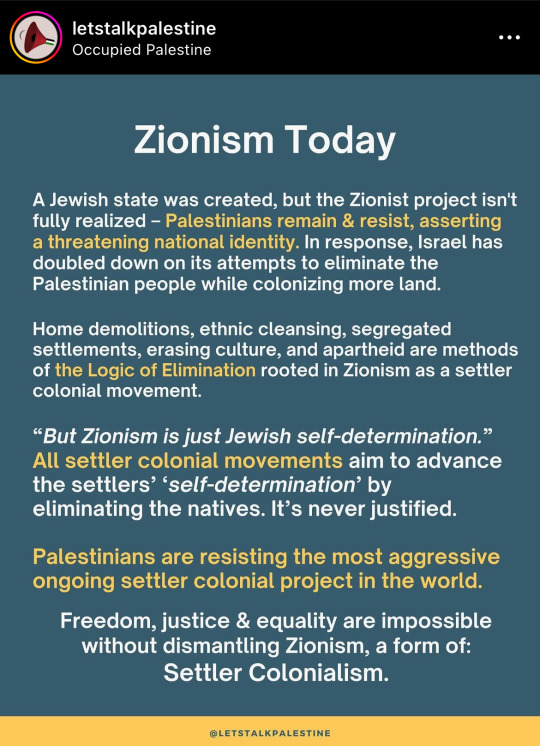
ID 10: The tenth image is titled: "Zionism Today". The body text reads: "A Jewish state was created, but the Zionist project isn't fully realized - Palestinians remain & resist, asserting a threatening national identity. In response, israel has doubled down on its attempts to eliminate the Palestinian people while colonizing more land. Home demolitions, ethnic cleansing, segregated settlements, erasing culture, and apartheid are methods of the Logic of Elimination rooted in Zionism as a settler colonial movement. 'But Zionism is just Jewish self-determination.' All settler colonial movements aim to advance the settlers' 'self-determination' by eliminating the natives. It's never justified. Palestinians are resisting the most aggressive ongoing settler colonial project in the world. Freedom, justice & equality are impossible without dismantling Zionism, a form of: Settler Colonialism."
#reaux speaks#zionism#free palestine#free gaza#gaza#genocide#palestine#settler colonialism#great britain#history#ethnostate#ethnic cleansing#anti zionism#resources#instagram
193 notes
·
View notes